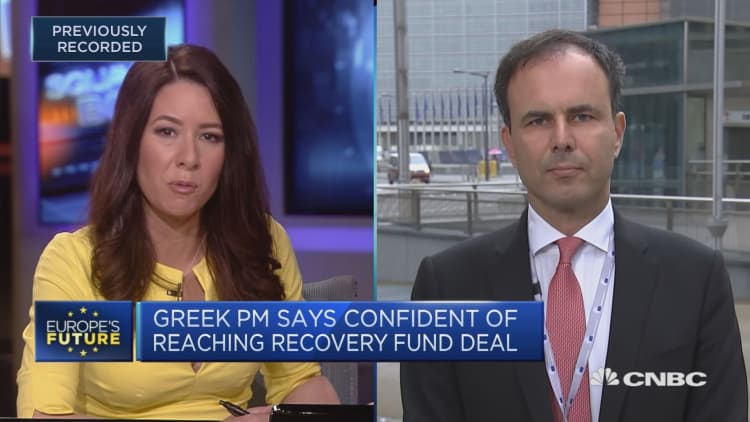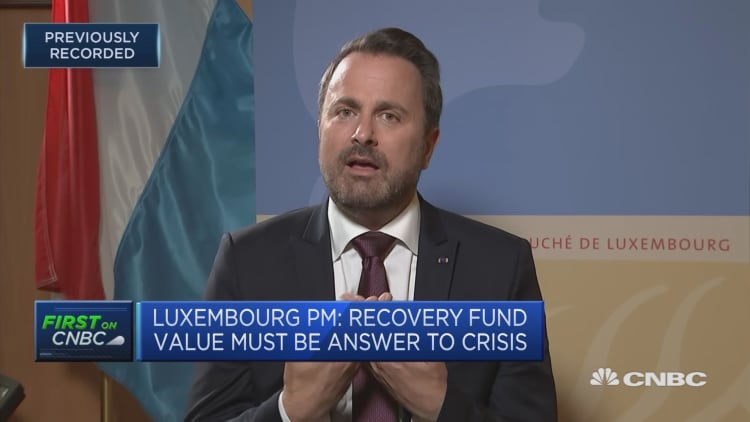
European leaders are back in Brussels for the first time in about five months as they look to finalize a deal over a 750 billion euro ($855 billion) recovery fund.
The 27 European Union governments have been at loggerheads for months over how to mitigate the economic shock from the coronavirus. In May, the European Commission, the executive arm of the EU, suggested raising 750 billion euros in pubic markets to invest in the hardest-hit sectors and countries. However, there are still disagreements over how to distribute that money, how to oversee its application, and even whether such a high amount of borrowing is needed.
Friday marks the first face-to-face meeting of the European leaders since the pandemic started. It is hoped the summit will help the leaders move closer to an agreement on the fund, but their negotiations could drag over the weekend as they work on the nitty-gritty.
"I took enough shirts for the next days to be able to find an agreement here in Brussels," Luxembourg Prime Minister Xavier Bettel told CNBC's Squawk Box Europe Friday.
He added that if there was no breakthrough this weekend, it would be "very bad" for Europe and financial markets, as it would raise questions about the credibility of the bloc to deliver on further fiscal stimulus.
How to invest
One of the main obstacles ahead of Friday's summit is how the money will be invested across Europe.
The latest proposal suggests that member states will be required to present reform plans, in which they outline where they will invest the European funds. These would then need to be approved by a qualified majority of the 27.
However, there is pressure from the Dutch government to require a unanimous vote, meaning that any country could end up vetoing the plans of another nation.
This has sparked opposition from some countries and other European institutions for giving too much power to nations over each other's national projects.
"My prediction is as good as yours, but the first possibility for a deal is sometime between Saturday night and Sunday morning," Alexander Stubb, the former prime minister of Finland, tweeted Friday.
"The more likely scenario is a couple of all-nighters and a deal on Monday. Failing that, deal end of July."

Repaying the bill
Another big hurdle is how to repay the new debt. The latest proposal suggests imposing a carbon tax, a levy on plastic waste, and a digital duty. However, there is no consensus among the 27 over these taxes.
Speaking to CNBC Friday, Luxembourg's prime minister said Europe cannot impose a digital tax on its own, as that would make it less attractive for businesses in comparison with other parts of the world.
"I don't want to give the message to the companies that Europe is not business friendly anymore," Bettel added.



